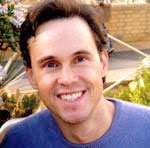
The Happiness Project receives countless invitations from the press to contribute to features on happiness, relationships and success. However, the call we got from Helen at the Evening Standard was a particularly challenging request: coach a cynical journalist to become optimistic in 7 days. Enjoying a challenge I agreed to meet and get to work. Our first conversation was held at Helen’s impressive home in the heart of Notting Hill. It was a good reminder that material possessions don’t necessarily translate to a sunny disposition. We sat down to a delicious dinner and were joined by her teenage son who was on the verge of going back to boarding school following the summer holidays.
The initial conversation revolved around her son and the difficulties of succeeding in an academic environment when your natural strengths lie in having a more creative and intuitive outlook. In particular we focused on the potential impact of needing to achieve a grade in one subject that could determine future university possibilities. He was initially putting most of his eggs in one basket and was experiencing anxiety about not getting the required grade. We explored how different mindsets could affect his behaviour, and eventually he was able to recognise that by taking a broader approach and keeping his options open it would enable him to perform better. I shared with him the idea that, ‘Optimism is not positive thinking, it is the willingness to explore new ways of looking at things to arrive at a creative solution.’
He then headed off to complete his homework and our conversation then touched on a variety of daily challenges for Helen including how to complete deadlines for work, manage difficult relationships with editors, have the courage to only take on work that truly inspires and handle the feelings of having both her sons return back to boarding school. Helen described herself as a pessimist and initially rallied against the idea of applying optimism to these difficulties. Upon further exploration we got down to the heart of the resistance, which was a misunderstanding about what is optimism.
It is very common for people to think that optimism is simply ‘positive thinking’. However, as Tal Ben-Shar a professor who teaches the very popular positive psychology course at Harvard University says, “Optimalists are not those who believe everything happens for the best, but those who make the best of everything that happens.”
I set Helen some simple tasks to complete the following week:
1. Each day ask the question, ‘What is success today?’ This is the question at the heart of our sister project, Success Intelligence and lends itself to the profound inquiry of defining success in your life, work and relationships.
2. Keep a ‘gratitude diary’. This exercise is at the centre of the Happiness Project and encourages us to start truly appreciating the gift of being alive.
3. Commit to self-acceptance. This exercise can be the most challenging. The majority of us are experts at putting ourselves down and judging ourselves harshly. Self-acceptance is the art of extending compassion and non-judgment to ourselves so that we are able to manage situations in a more constructive way.
4. Observe your thoughts. We use an analogy at the Happiness Project that thoughts are like buses. Just because a bus passes by it doesn’t mean you have to get on it. Psychologists estimate that we think approx. 40,000 thoughts a day. Just because we are having a thought doesn’t mean we have to act on it, or believe it.
I must say I was surprised when Helen’s article hit the press to discover that there appeared to be a profound shift in her outlook. As she put it, “Perhaps the greatest insight I gained was that thoughts, no matter how terrifying, are just thoughts.”
To read the article in full visit
http://www.thisislondon.co.uk/lifestyle/article-23746824-the-new-optimism-how-you-can-be-happy.do


